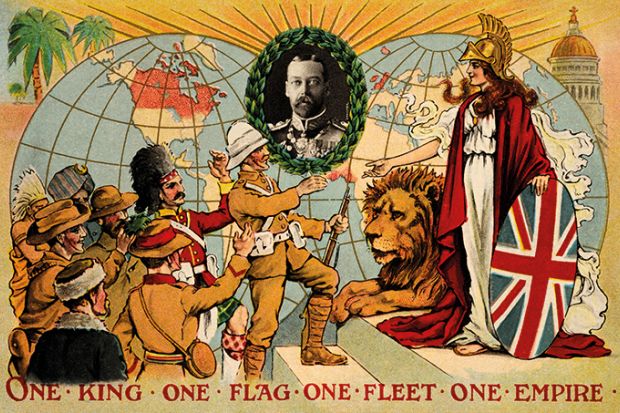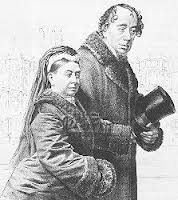This article appeared in the Wall Street Journal last month and posits that an evolving alliance of four English-speaking countries with similar culture, political views and histories could serve as an "ally" of the US and Japan in countering China's aggression (and possibly Russian aggression):
1.) The US was the original rebel from "the Anglosphere" with its own radical ideas about government, individual rights and freedoms not being subject to the sovereign, but indeed, holding primacy over the rights of the sovereign;
2.) the evolution of the US legal system flows from those differences and is why such things as the Second Amendment and stand your ground are so radically different from the "no right to armed self-defence" doctrine of the Anglosphere;
3.) we should reserve the right for unilateral action with partners like Israel and Poland and allying with the Anglosphere might tie our hands;
4.) The Brits/Aussies/Kiwis have never truly appreciated iced tea in all its glory.
There are a lot of things to like about this, but very briefly, my points of difference are as follows:Quote:
How will Great Britain survive Brexit and prosper in a world solidifying into the three empire blocs of the U.S., China and the European Union? One answer is to realize the concept of the "Canzuk Union," a vital first step on the way to a fully functioning Anglosphere.
The Anglosphere is the name given to all those countries in the world where the majority of people speak English as their first language, almost all of which have similar outlooks and shared values. The four "Canzuk" countries of Canada, Australia, New Zealand and the U.K. are a prominent historical subset of this larger group, and there is a mounting case that some form of federation among themwith free trade, free movement of people, a mutual defense organization and combined military capabilitieswould create a new global superpower and ally of the U.S., the great anchor of the Anglosphere.
Prime Minister Boris Johnson's welcome decision to cut the tech giant Huawei out of Britain's 5G network and China's sabre-rattling against Canada and Australia are just the most recent developments pushing the Canzuk idea into the realm of practical politics. Others include the projected Anglo-Australian post-Brexit free trade deal...
-------
....The Canzuk Union would immediately enter the global stage as a superpower, able to stand shoulder-to-shoulder with the U.S. in the great defining struggle of the 21st century against an increasingly revanchist China.
------
Canzuk would have a combined GDP of more than $6 trillion, placing it behind only the U.S., China and the EU. Its combined population of 135 million would make it the world's ninth-largest power demographically, with much higher levels of education and GDP per capita than most of the other eight. And with a combined defense expenditure of over $100 billion, it would also be able to punch above its weight.
All four countries have long been members of the Five Eyes intelligence alliance with the U.S., and Canada's membership in the North American Aerospace Defense Command (Norad) would be extended to the Canzuk Union as a whole, with Britain providing a nuclear deterrent and space program and its seat on the U.N. Security Council.
-------
...There is no reason why the American taxpayer should pick up the bill of being the world's policeman forever, and an intimate alliance with Canzuk would provide welcome relief. The cost of curbing and containing China's global ambitions would become the historic role of not one but two superpowers, as it is clear that the EU has no interest in trying to stop Chinese hegemony in Asia. A strong, prosperous Canzuk Union would make the Anglosphere a force-multiplier in a more uncertain world.
-------
Today, with the further support of a "galaxy" of supportive countries such as Israel, India, South Africa, Poland, Japan and so on, the Anglosphere would be able to face down Russian, Chinese, Iranian, North Korean and other potential threats as we progress through this dangerous century. Churchill would have approved. Indeed, it is his phrase, "the English-speaking peoples," that gives the Anglosphere its powerful historical resonance.
The old and enduring loyalty, friendship and association among the various English-speaking communities and states has evolved over time, to meet changing circumstances and to seize opportunities. The communities should look to strengthen institutional ties, and create new ones, for the benefit of each of them, and of the world.
https://www.wsj.com/articles/its-time-to-revive-the-anglosphere-11596859260
1.) The US was the original rebel from "the Anglosphere" with its own radical ideas about government, individual rights and freedoms not being subject to the sovereign, but indeed, holding primacy over the rights of the sovereign;
2.) the evolution of the US legal system flows from those differences and is why such things as the Second Amendment and stand your ground are so radically different from the "no right to armed self-defence" doctrine of the Anglosphere;
3.) we should reserve the right for unilateral action with partners like Israel and Poland and allying with the Anglosphere might tie our hands;
4.) The Brits/Aussies/Kiwis have never truly appreciated iced tea in all its glory.
“If you’re going to have crime it should at least be organized crime”
-Havelock Vetinari
-Havelock Vetinari




